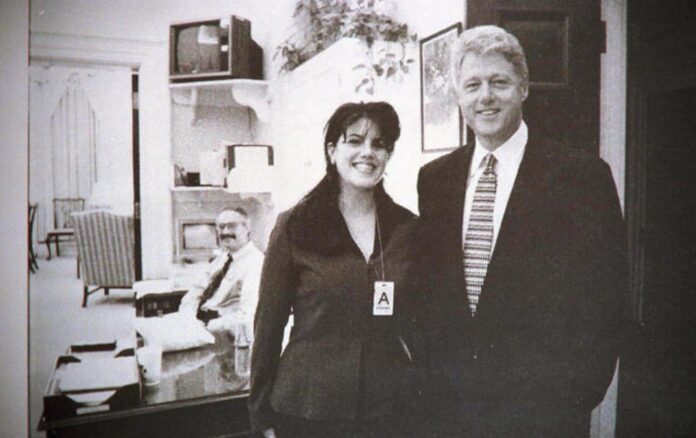Twenty-six years ago today (December 19, 1998), the U.S. House of Representatives voted to impeach President Bill Clinton on charges of perjury and obstruction of justice. The impeachment, stemming from the Monica Lewinsky scandal, marked only the second time in American history that a sitting president faced such a rebuke.
The Scandal That Led to Impeachment
The controversy began with allegations that President Clinton had engaged in an extramarital affair with Monica Lewinsky, a White House intern. During a deposition in a separate sexual harassment lawsuit brought by Paula Jones, Clinton denied having a relationship with Lewinsky. When news of the affair emerged, Clinton famously addressed the nation, stating, “I did not have sexual relations with that woman, Miss Lewinsky.”
However, evidence—including taped conversations and a semen-stained dress—contradicted his claims. An investigation led by independent counsel Kenneth Starr culminated in the Starr Report, which alleged that Clinton had lied under oath and obstructed justice by attempting to conceal the affair.
The House Impeachment Vote
On December 19, 1998, after heated debate, the Republican-controlled House of Representatives approved two articles of impeachment:
- Perjury: For lying under oath about his relationship with Lewinsky.
- Obstruction of Justice: For attempting to influence witnesses and conceal evidence.
The vote split largely along party lines, with the first article passing 228–206 and the second 221–212. Two additional charges, accusing Clinton of abuse of power, failed to gain approval.
The Senate Trial and Acquittal
Following impeachment, the case moved to the Senate for trial in January 1999. A two-thirds majority vote was required to remove Clinton from office, but the Senate ultimately acquitted him on both charges. The perjury charge fell short with a 45–55 vote, and the obstruction charge was defeated 50–50.
Clinton completed his second term in office, leaving in January 2001 with high public approval ratings despite the scandal.
Historical Significance
Clinton’s impeachment highlighted deep partisan divisions in American politics, with Democrats accusing Republicans of pursuing impeachment for political gain rather than genuine constitutional concerns. It also sparked debates about personal morality, public accountability, and the boundaries of executive power.
Clinton himself apologized for his actions, describing them as a “personal failure” while maintaining that they did not warrant removal from office. The event underscored the evolving role of media and public scrutiny in shaping perceptions of political leadership.
Legacy and Lessons
The impeachment of Bill Clinton remains a pivotal moment in U.S. history, illustrating the intersection of personal misconduct, political polarization, and the constitutional process. While it didn’t end Clinton’s presidency, it left an indelible mark on his legacy and influenced the modern dynamics of presidential accountability.
Conclusion
On December 19, 1998, the House of Representatives impeached President Bill Clinton, a moment that tested the resilience of American democracy and revealed the complexities of balancing personal failings with public leadership.






